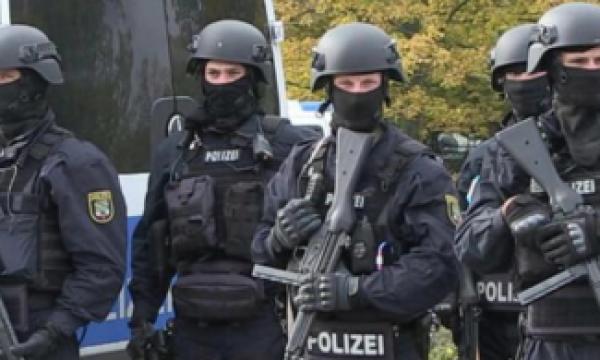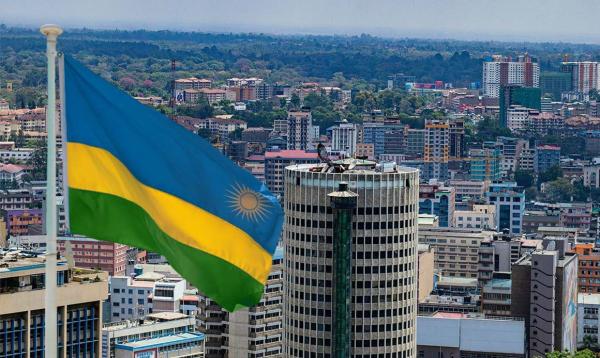
KIGALI, Rwanda - World Health Organization (WHO), said a rapid response teams have swung into action to prevent further transmission after a second case of Ebola was detected Tuesday in DR Congo's border city of Goma close to the Rwandan border.
WHO further stated that no case has been reported on Rwandan soil yet.
WHO Director-General Dr Tedros Adhanom Ghebreyesus last week commended Rwanda on its Ebola preparedness efforts.
“Sad news coming from Goma, DRC - the second Ebola case has been confirmed. There is no indication at the moment that this person is linked to the first case identified in this city on 14 July. Rapid response teams have swung into action to prevent further transmission, @ Ghebreyesus tweeted Wednesday.
“Over 5000 health workers have been vaccinated against Ebola in Goma, DRC. Health centres have been provided with training and equipment to improve infection prevention and control. Screenings at border crossings have been reinforced & 24h monitoring implemented at the airport”, he added.
According to the WHO boss, the risk of national Ebola spread is high. The population in Goma, he said, is highly mobile: “So this is an event we have anticipated”.
“This is why we have been doing intensive preparedness work in Goma so that any new case is identified and responded to immediately,” he explained.
More than 1,600 people have died of Ebola in DR Congo since the outbreak began in August 2018.
Over a week ago, the WHO called the outbreak a Public Health Emergency of International Concern (PHEIC), urging the international community to step up its support.
PHEIC is a formal declaration by the UN agency in charge of world health matters of an extraordinary event, which is determined to constitute a public health risk to other states through the international spread of disease.
The decision to declare a public health emergency of international concern potentially requires a coordinated international response and it, among others, does not imply that countries should close their borders or place any restrictions on travel and trade.
The decision came a few days after the first case of Ebola was detected in Goma.
In Kigali, the Government has embarked on robust community awareness and mobilisation, vaccination of frontline workers, creating EVD treatment centres, and stepping up surveillance.
Early this year, the Rwandan Ministry of Health launched an Ebola campaign in which health and frontline health workers were immunised against the virus to protect them in case they have to deal with suspected or confirmed Ebola cases.
The country has equally trained 23,657 people, including medical personnel at various levels, police officers, and Red Cross volunteers in preparation to deal with possible outbreak.
The Cabinet also approved the use of an experimental drug - Recombinant Vesicular Stomatitis Virus Vaccination for the protection against the virus.
Lately, the Ministry is conducting clinical drills to assess the preparedness of medics at different public hospitals in high risk areas. The drills started Monday and will run through August 9 at eight District hospitals.
Malick Kayumba, the Spokesperson of the Ministry of Health, said on Wednesday: “As Rwanda remains without any Ebola case registered to date, we again remind everyone to seriously consider prevention measures.
“Rwanda continues to intensify the surveillance at all points of entry as well as at the community level to make sure we prevent this disease from crossing our borders and in case it does we are able to quickly treat the infected person and avoid any spread”.
Ebola symptoms
Experts say Ebola symptoms may appear anywhere from 2-21 days after contact with the virus, with an average of 8-10 days but many common illnesses can have these same symptoms, including influenza or malaria.
Recovery from Ebola depends on good supportive clinical care and the patient's immune response.
According to the WHO, an infected person cannot spread the disease until they develop symptoms.
Symptoms can be sudden and include: fever, severe weakness, muscle pain, headache, and sore throat.
This is followed by: vomiting, diarrhoea, rash, symptoms of impaired kidney and liver function, and in some cases, both internal and external bleeding (for example, oozing from the gums, or blood in the stools).
How to protect oneself and prevent the spread of Ebola
According to the Ministry of Health, in order to protect oneself and prevent the spread of Ebola it is important to ensure the following:
- Proper body hygiene by washing hands frequently;
- Avoid travels to an area affected by an Ebola outbreak;
- Avoid contact with blood and body fluids, items that may have come in contact with an infected person's blood or body fluids, body of someone who died of EVD and or meat from an unknown source.
- Report via a toll-free (114) nationwide phone alert system, to community health workers, nearby health facility and or police station any suspected case with Ebola-like symptoms.
#New Times




















